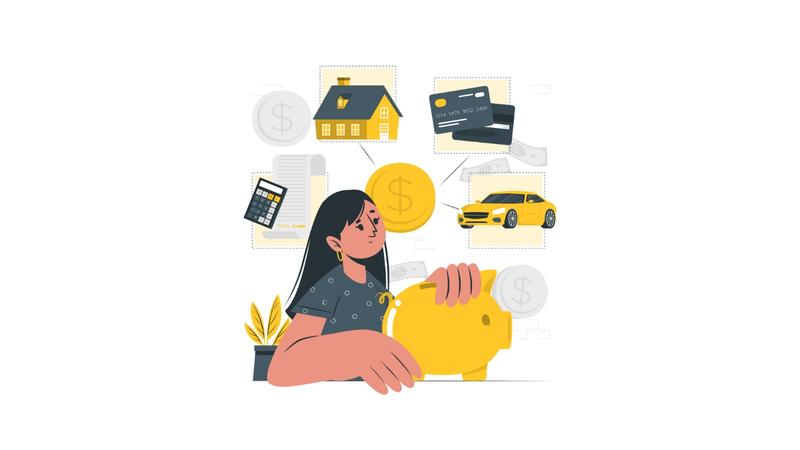Published 12:36 IST, September 30th 2024
Why It Pays To Become Financially Literate
While financial literacy is important, personal finance is more than just knowing the basics.

In an interconnected world financial literacy is more important than ever. It’s not just about understanding how to manage your money by budgeting or saving what you earn or have - it’s about making smart and informed decisions that will impact your financial well-being for years to come. Unfortunately, the statistics are alarming: financial literacy is low in India and globally.
In India, only 27 per cent of adults are financially literate as per a study by National Centre for Financial Education (NCFE). This means nearly three-fourths of the population is financially illiterate and hence relies on informal credit, poor saving habits, and no long-term financial planning. The consequences are severe, many are not prepared for emergencies, retirement, and other life events.
Globally the situation is equally bad. A survey by Standard & Poor’s found that only 33 per cent of adults worldwide are financially literate. This gap leaves most of the global population in financial mismanagement, debt, and poor investment choices.
Our life is the sum of our daily decisions, and many of those decisions are about money. From small purchases to big investments, financial decisions impact our quality of life and long-term stability. Imagine if we could make smart and informed financial decisions every day – how much more secure and powerful would we feel?
But here’s the thing: knowing what to do isn’t enough. As they say, “Knowledge without action is potential energy.” We may have the information but if we don’t act on it, the knowledge is wasted. That’s why financial literacy must go hand in hand with financial practice. We need to not only learn but also do, and by applying financial principles in our daily lives we become more skilled and secure with our money.
While financial literacy is important, personal finance is more than just knowing the basics. One must also master financial planning which is about aligning your money with your life goals. Whether you are saving for your children’s education, planning for retirement, or buying a home, financial planning ensures you are prepared for every stage of life. Financial planning is about understanding what you want your money to do for you. Yes, money is a tool and it’s not just a means to an end. But, instead of looking at it only as an abstract tool, look at it as a resource to fund your dreams, goals, and desires. This makes your financial decisions purposeful, and you can allocate your resources where it matters the most.
For example, when planning for retirement financial literacy helps you know how much you need to save. But being financially smart means knowing why you are saving: to have a comfortable life post-retirement without compromising on the lifestyle you enjoy today. Financial planning helps you chart out the way how to get there.
Personal Finance: More Personal Than Finance
Personal finance is more than just numbers on a spreadsheet—it’s personal. It’s not just about money but about making decisions that align with your life plans, values and goals. What works for one person may not work for another because everyone’s needs, desires and financial situation is different.
This is why financial planning is key to life planning. Knowing what you want out of life helps you create a financial strategy that supports your vision. Whether it’s owning a home, traveling the world or creating a comfortable retirement fund financial planning helps you tailor your approach to money in a way that supports your life’s goals.
Understanding the Purpose of Your Money
When seeking wealth-building and financial freedom, an important question to consider is, "What do I want my money to do for me?" Knowing the answer to this question will lead to an informed financial decision-making process, whether it's saving, spending, investing, or giving.
When you don't have a purpose, management around money is generally reactive instead of proactive. The smartest people with their finances don't only understand how to budget and save, but they are driven by their purpose with their money. They understand that money is only a vehicle and use it to achieve their SMART goals in life that they are working towards achieving.
The financial road to opportunity and freedom starts with being literate about money, but the journey does not end there. Being more than literate - Being financially smart -means being alert, aware, and acting concerning your decisions around money. Start to consider what you want from life and use your financial planning as a tool to make those desires a reality. Literacy will provide a foundation, however, being smart and sensible with your money will create action towards your financial future.
Sources:
•NCFE (National Centre for Financial Education) Study on Financial Literacy in India
•Standard & Poor's Global Financial Literacy Survey
Nita Menezes is the Founder of Financially Smart & MoneyPrastha. She is the author of – Be Financially Smart – A Modern Woman’s Guide to Money.
Updated 12:20 IST, October 3rd 2024